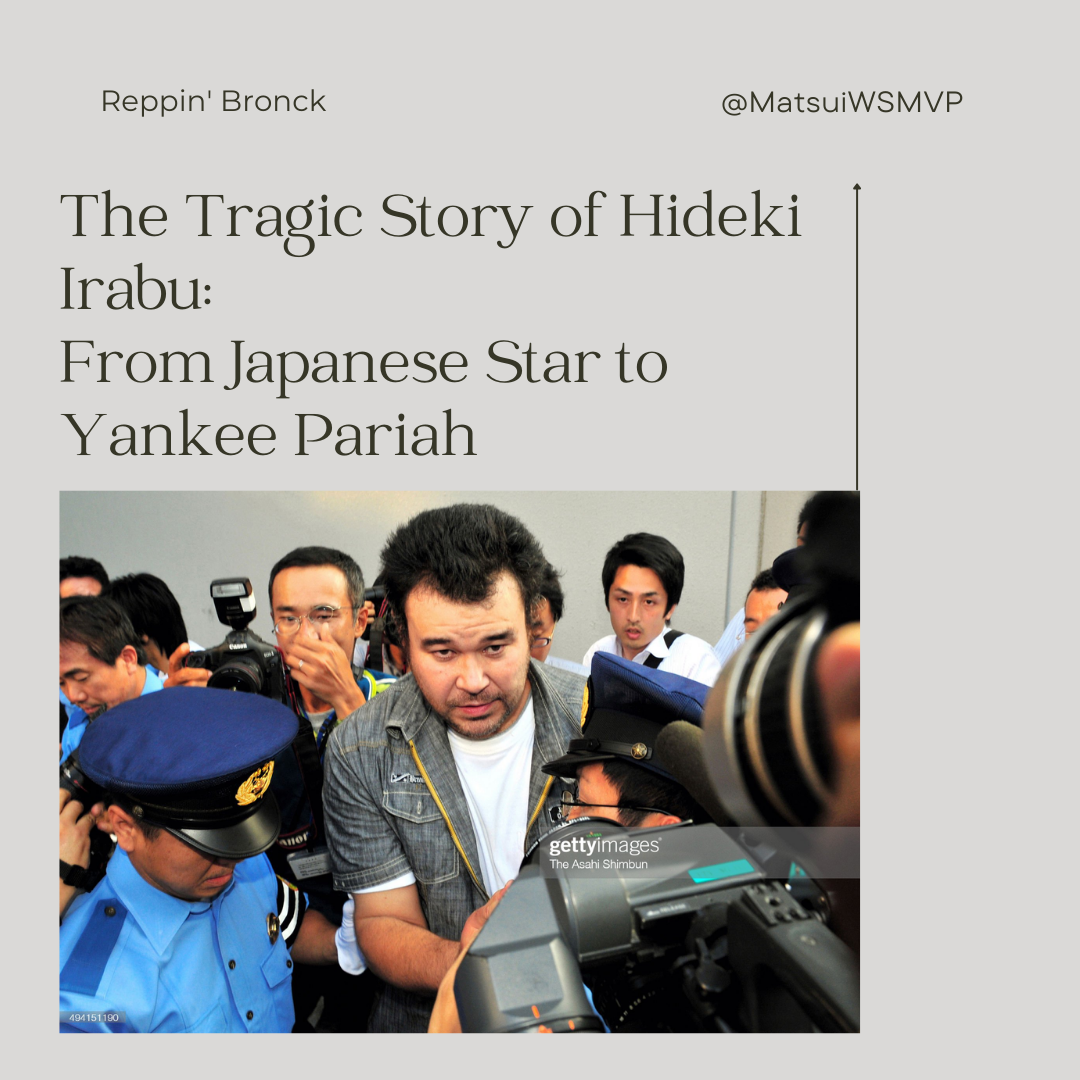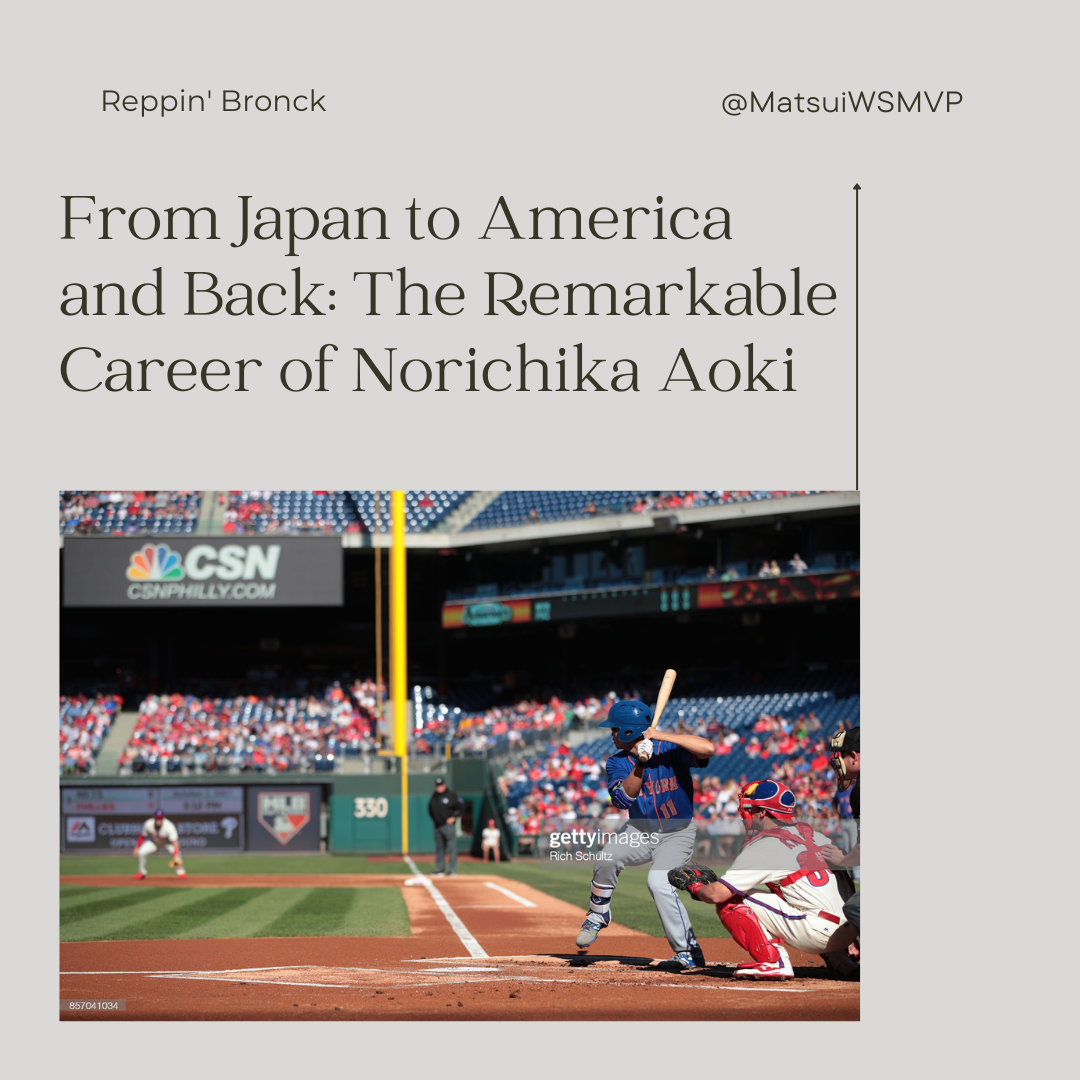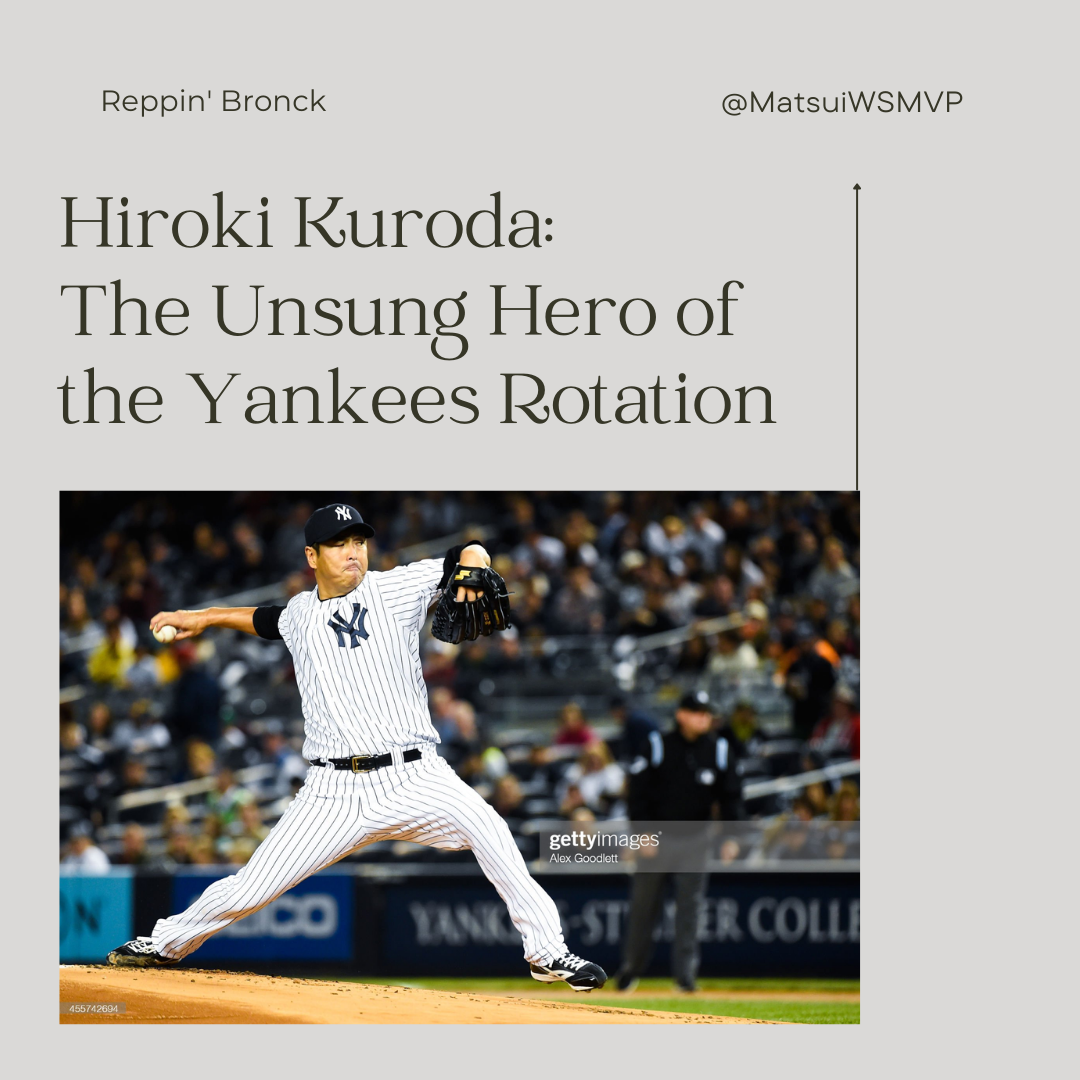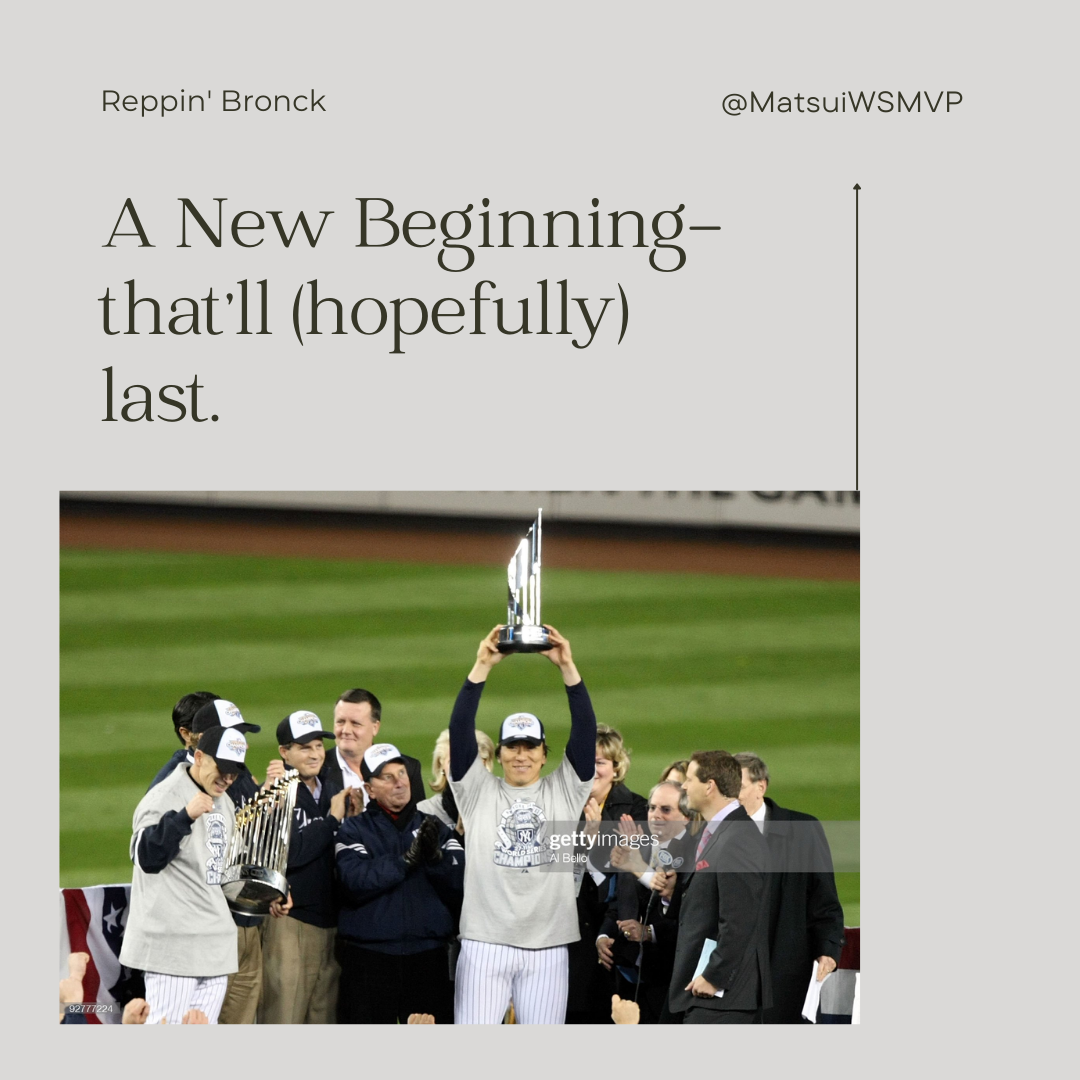Hello, dear Yankee fans, Happy Easter to you all!
I hope you are having a wonderful time celebrating this special occasion with your loved ones, and enjoying the beauty of spring. Easter is a time of hope and renewal, a time to reflect on the meaning of life and death, and a time to appreciate the gifts we have been given. It is also a time to remember those who are no longer with us, those who have left a mark on our lives and our hearts.
That’s why today I want to share with you the story of a man who had a remarkable life and a tragic death, a man who touched many people with his talent and his spirit, but also struggled with his demons and his destiny.
His name was Hideki Irabu, and he was one of the most fascinating and controversial figures in baseball history.
This is his story.
He was once hailed as the Japanese Nolan Ryan, a fireballer who could dominate hitters with his 99 mph fastball. He was the first Japanese-born player to win a World Series and one of the pioneers who paved the way for other Asian stars to come to the major leagues. He was also a troubled soul, haunted by his past, tormented by his present, and ultimately driven to his death. This is the story of Hideki Irabu, the pitcher who had it all and then subsequently lost it all.
A Promising Start: Irabu’s Rise in Japan and Arrival in New York
Irabu was born in 1969 in Okinawa, Japan, a product of a brief affair between a Japanese woman and an American serviceman. His father, Steve Thompson, left before he was born, and never returned until Irabu reached the big leagues. His mother, Kazue, married a restaurateur named Ichiro Irabu, who raised him as his own son. Irabu grew up in Amagasaki, near Osaka, where he developed a passion for baseball.
Irabu made his professional debut in 1988 with the Lotte Orions of the Pacific League, later renamed the Chiba Lotte Marines. He quickly established himself as one of the best pitchers in Japan, setting a record for the fastest pitch ever thrown in NPB at 158 km/h (98 mph) in 1993. He led the league in strikeouts three times, and won two Best Nine Awards and one Eiji Sawamura Award (the equivalent of the Cy Young Award).
Irabu’s success in Japan attracted the attention of major league scouts, especially the New York Yankees, who had a strong interest in signing him. However, Irabu had a contractual obligation to the Marines, who had a working agreement with the San Diego Padres. In 1997, the Marines sold Irabu’s rights to the Padres for $3 million, despite Irabu’s desire to play for the Yankees. Irabu refused to sign with San Diego and demanded a trade to New York.
The standoff lasted for months until the Yankees finally agreed to send two prospects and $3 million to the Padres for Irabu’s rights. The deal was unprecedented and sparked controversy among other teams, who felt that Irabu had circumvented the rules of international free agency. The deal also led to the creation of the posting system, which allows NPB teams to auction off their players’ rights to MLB teams. Irabu signed a four-year, $12.8 million contract with the Yankees, and was greeted with much fanfare in New York. He made his MLB debut on July 10, 1997, at Yankee Stadium, in front of 52,000 fans and hundreds of media members. He pitched 6 2/3 innings of two-run ball, striking out nine batters and earning a standing ovation. He was dubbed “the Japanese Nolan Ryan” by The New York Times.
A Bitter End: Irabu’s Decline in MLB and Return to Japan
However, Irabu’s honeymoon in New York soon turned sour. He struggled with inconsistency, injuries, and cultural adjustments. He clashed with manager Joe Torre and pitching coach Mel Stottlemyre over his conditioning and work ethic. He was booed by fans and ridiculed by the media for his poor performance and weight gain. He was famously called “the fat pussy toad” by owner George Steinbrenner after failing to cover first base in a spring training game in 1999.
Irabu did have some bright moments with the Yankees. He was part of their World Series-winning teams in 1998 and 1999, becoming the first Japanese-born player to win a championship ring. He threw a complete game shutout against the Detroit Tigers on May 17, 1998, striking out 13 batters. He won 29 games in three seasons with New York, posting a respectable 4.80 ERA.
But Irabu never lived up to his potential or his hype in New York. He was traded to the Montreal Expos after the 1999 season for Ted Lilly and two other players. He spent two seasons with Montreal, where he pitched better but received little run support or attention. He then signed with the Texas Rangers as a free agent in 2002, but lasted only one season before being released.
Irabu returned to Japan in 2003, hoping to revive his career with the Hanshin Tigers of the Central League. However, he suffered from elbow problems and pitched poorly in limited action. He retired after the 2004 season at age 35.
A Troubled Life: Irabu’s Personal Struggles and Legal Issues
Irabu’s post-baseball life was marred by personal troubles and legal issues. He divorced his first wife, Kyonsu, with whom he had two daughters, in 2005. He remarried in 2007, but his second marriage also ended in divorce. He moved to California, where he opened a Japanese restaurant and a sports bar, but both businesses failed. He also became addicted to alcohol and gambling, and racked up debts and lawsuits.
Irabu’s downward spiral reached a low point in May 2010, when he was arrested for driving under the influence in Gardena, California. He pleaded no contest and was sentenced to probation and community service. He also enrolled in a rehab program and tried to get sober.
Irabu seemed to be making some progress in his recovery. He reconnected with his father, Steve Thompson, who had reached out to him after hearing about his arrest. He also visited Japan in June 2011, where he met with his former teammates and coaches from the Marines and the Tigers. He expressed interest in coaching young pitchers and returning to baseball.
However, Irabu was still battling depression and loneliness. He felt isolated and ashamed of his failures. He missed his daughters, who lived with their mother in Japan. He had few friends or supporters in the U.S. He also faced financial pressure from his creditors and ex-wives.
A Sad Death: Irabu’s Suicide and Aftermath
On July 27, 2011, Irabu was found dead in his home in Rancho Palos Verdes, California. He had hanged himself with a rope in his bedroom. He was 42 years old. He left no note or explanation for his suicide. Irabu’s death shocked and saddened the baseball world. His former teammates and opponents paid tribute to him as a talented and competitive pitcher who had a bright future ahead of him. His fans in Japan mourned the loss of one of their heroes who had inspired them to pursue their dreams. His family and friends grieved for a man who had suffered so much pain and despair. He was a man that was often poked fun at, but he had, with only one action, suddenly shown the world the aftermath of his year-long suffering. With doubters turned to believers, and his passing mourned by the masses, what legacy had he left behind?
A Complex Legacy: Irabu’s Impact and Memory
Irabu’s story is a tragic one, but also a cautionary one. It shows how fame and fortune can come with a heavy price, and how success can turn into failure in a blink of an eye. It also shows how important it is to have support and guidance from others, especially when facing challenges and difficulties.
Irabu was a complex and flawed human being, but he was also a gifted and courageous one. He had a passion for baseball that drove him to achieve great things, but also led him to make costly mistakes. He had the desire to prove himself which motivated him to overcome obstacles but also made him vulnerable to criticism and pressure. He had a spirit of adventure that took him to new places, but also left him feeling lost and alone.
Irabu’s legacy is not defined by his failures or his flaws, but by his achievements and his potential. He was a pioneer who opened the door for other Asian players to follow in his footsteps. He was a champion who helped the Yankees win two World Series titles. He was a star who dazzled fans with his fastball and his charisma.
Even if he never materialized into what he could have been,
He was Hideki Irabu, the Japanese Nolan Ryan, the fat pussy toad, the tragic hero.
He was more than just a pitcher.
He was a person.
And he deserves to be remembered as such.




